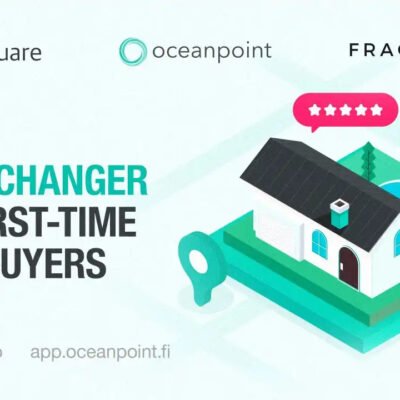Millennials have become the most active generation of investors with about one in three buying property on their own, using strategies such as rentvesting to begin their property ownership journey.
The Commonwealth Bank says 46% of its new property investor customers last year were Millennials, who were born between 1981 and 1996. The next biggest generation of investors were Gen Xers, born between 1965 to 1980, who accounted for 37% of investment purchases.
Rentvesting is one of many great examples I’ve seen of younger generations adapting to the inevitable affordability challenges of a consistently rising property market like Australia’s. It’s impressive to see people in their 30s and early 40s making up such a big proportion of CommBank’s new investor clientele last year.
Real estate is the best way to generate wealth in Australia. It’s a safe, reliable and gradual way to build wealth over the long term without the large swings in value that we see on the share market.
Investors are increasingly active in property today, with data from the Australian Bureau of Statistics showing a 21.5% increase in investor lending compared to 9.1% growth in owner-occupier finance over the past 12 months.
The CommBank data shows the average loan size among new investor customers was $500,000. These days, a loan of that size will typically buy a city apartment, or a house in a cheaper market.
The pandemic opened many people’s eyes to affordable investment opportunities in regional areas and cheaper capital cities. As a result, we’ve seen investors widening their search criteria.
Research by MCG Quantity Surveyors shows the average distance between landlords’ homes and their investment properties surged to 1,502km in the year to November 2023. This compares to 857km in the year to November 2022 and 294km prior to the pandemic.
Houses traditionally go up in value faster than apartments, so some investors would see this alone as a reason to buy in an unfamiliar but much more affordable market. Today’s high interest rates are also restricting their budgets, which may also force some investors to look further afield.
Millennials, in particular, use more digital tools to assess the property market. Tech-savvy, they rely on apps and social media to find everything from properties for sale to financing options. So, it’s no surprise that more of them are likely thinking differently than their parents about where to invest in property.
A great example of interstate investing trends right now is East Coast investors buying in Perth and regional Western Australia, where median house prices are about $720,000 and $495,000, respectively, and gross rental yields are 4.4% and 6.2%.
Greater investor demand has contributed to an 18.6% surge in the median house price in Perth and a 10.8% increase in regional Western Australia over the past 12 months, according to the latest CoreLogic figures.
The generation with the most wealth available for property investment is the baby boomers, yet they made up only 9% of CommBank’s new investors last year. Having said that, many baby boomers already own investment properties, with ATO data showing Australians over the age of 60 make up the largest cohort of landlords.
Many baby boomers can also buy new property investments with cash, so they don’t need a bank loan.
CommBank said the most popular postcodes for investment purchases last year were 2000 (Sydney CBD); 3029 (West Melbourne); 2765 (North West Sydney, including Marsden Park), 3064 (North Melbourne), and 2155 (North West Sydney, including Kellyville).
By John McGrath, Chief Executive Officer of McGrath Estate Agents.
Smilar to this:
John McGrath – The most popular regions with relocating city dwellers | The Real Estate Conversation
John McGrath – Demographic trends influencing housing prices
John McGrath – Investors are back and looking further afield | The Real Estate Conversation
John McGrath – Market predictions for 2024 | The Real Estate Conversation





